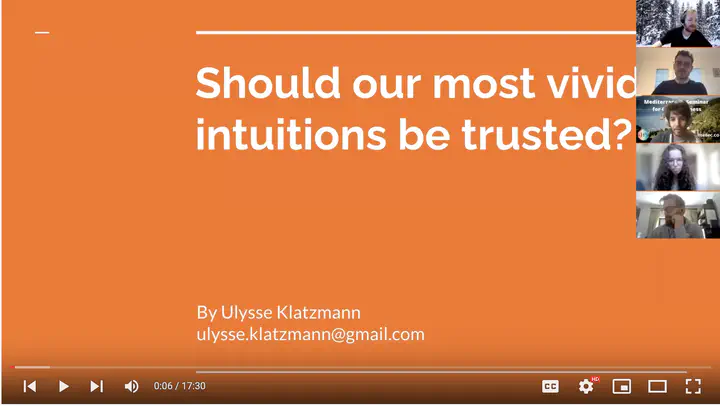Should our most vivid intuitions be trusted?
 Image credit: Unsplash
Image credit: UnsplashAbstract
Our brain and cognition was built by hundreds of millions of years of evolution, and was « designed », not to give us an accurate picture of the world, but to help us survive and pass our genes. « Understanding » the quantum nature of reality will be of little help while hunting a dear. « Knowing » that the earth is round might be counter-productive while throwing a rock at a wild boar. Instead, natural selection and early development gave us powerful intuitions to interact with the world around us, that were proven to be wrong (like the flat earth shared intuition).
Because other people cognition (as long as ours) is such an important part of our environment, it’s likely that evolution gave us intuitions that could be good first approximations, but couldn’t in the end be farer the truth (free will being one of the obvious one).
We all have strong intuitions, sometimes shared, sometimes based on our very personal subjective experience . It’s tempting to consider them as a good start to study consciousness. But while they can teach us a lot about the meta problem of consciousness (as stated by David Chalmers), they should be dealt with cautions while used as arguments supporting a theory.
Being genuinely certain of something does not make it true.